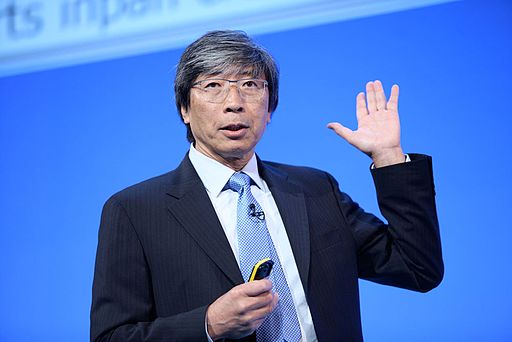
March 6, 2017; STAT
On the heels of a Rebecca Robbins STAT report on an apparent blatant misuse of philanthropy by a medical mogul and the associated misrepresentation of its successes, NantHealth’s stock fell 23 percent yesterday. This looks like another ugly example of self-dealing philanthropy in the world of medicine—but this one comes with some unusual bells and whistles.
Dr. Patrick Soon-Shiong, said to be the richest doctor in the world, would reap plenty of praise for his generosity in giving the University of Utah a $12 million donation. The $12 million donation came through two private foundations controlled by Soon-Shiong, along with his NantHealth Foundation (GuideStar listing, including Form 990 returns), “a type of public charity classified as a medical research organization.”
According to the foundation’s 2015 Form 990, highly unusual for a 501(c)(3) public charity, all NantHealth Foundation board members “shall be designated by Patrick Soon-Shiong, who is neither a member nor a stockholder, to take office upon designation. Each director shall serve at the pleasure of Patrick Soon-Shiong and shall hold office until a successor has been designated and qualified.”
Hidden in the wording of the University of Utah grant agreement, however, was a requirement that had $10 million of that funneled back into NantHealth, one of the good doctor’s own companies. The transaction—which is what it appears to have been—landed him a tax deduction, the philanthropic halo, a stream of steady cash, and access to the university’s patient data, which he needed to build a new commercial product meant to assess patients’ risk of rare and inherited diseases.
Sign up for our free newsletters
Subscribe to NPQ's newsletters to have our top stories delivered directly to your inbox.
By signing up, you agree to our privacy policy and terms of use, and to receive messages from NPQ and our partners.
But, that’s not the end of it. Through its relationship with the university, the company then inflated the number of test orders it reported to investors late last year by more than 50 percent.
NantHealth, the Soon-Shiong company that markets GPS Cancer, appears to have misled investors in reporting its third-quarter earnings last November. The company said that during the quarter it had received 524 orders for the GPS Cancer test, which analyzes tumor genetics and recommends treatments for patients. One-third of those orders came from the University of Utah deal, a company representative told investors on the earnings call.
But both Kiefer and the geneticist leading the research told STAT that the work they ordered from NantHealth had nothing to do with GPS Cancer. They paid for straightforward genetic sequencing, meant strictly for preclinical research. The geneticist, Deborah Wood Neklason, said she could not understand why NantHealth would count the work as orders for GPS Cancer.
STAT reports that the four tax experts it asked to review the contracts agreed that the Utah deal did not pass a sniff test, as it appeared to violate rules concerning charity and self-dealing. Marc Owens, a tax lawyer with Loeb & Loeb and a former head of the IRS’s Exempt Organizations Division, said the University of Utah was essentially laundering the money for Soon-Shiong. “My first reaction was surprise that the University of Utah lawyers agreed to sign this,” said Brian Galle, a Georgetown University law professor who specializes in nonprofit law. “We pretty clearly have an optics problem,” said the more restrained Morey Ward, a tax lawyer with Ropes & Gray.
Soon-Shiong has an estimated net worth of $9 billion, is known as a self-promoter, and has met at least twice with President Trump since the election. Some say he has been actively attempting to promote himself as the nation’s health czar.—Ruth McCambridge










